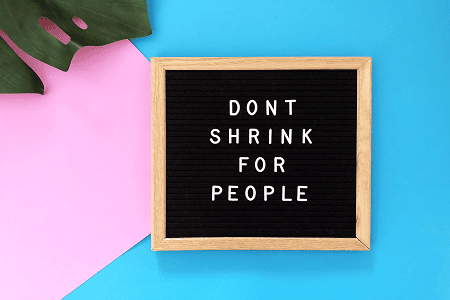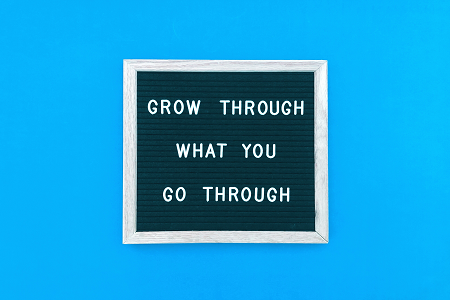
Introduction
Life is a series of transitions. From birth to death, we constantly move from one phase of life to another, experiencing changes in relationships, careers, living situations, and personal circumstances. While some transitions are eagerly anticipated, such as starting a new job or getting married, others can be daunting and unexpected, like the loss of a loved one or a sudden health diagnosis. In both cases, navigating these changes can take a toll on our mental health. In this article, we will explore the challenges of major life transitions and offer practical strategies for maintaining mental balance during these turbulent times.
Understanding Major Life Transitions
Major life transitions can be broadly categorized into positive and negative changes. Positive transitions may include getting married, having a baby, graduating, starting a new job, or moving to a new city. These changes are often associated with feelings of excitement, hope, and optimism. On the other hand, negative transitions involve events like the loss of a loved one, divorce, job loss, or a serious illness. These changes can bring about feelings of grief, anger, and uncertainty.
However, it's important to note that the line between positive and negative transitions isn't always clear-cut. What one person views as a positive change might be seen as a negative one by someone else. For example, while starting a new job may be exciting for one person, it could be a source of anxiety and stress for another. The key to coping with major life transitions and maintaining mental balance is to acknowledge and address the emotional impact they have on you, regardless of whether they are considered positive or negative by societal standards.
The Emotional Roller-coaster of Major Life Transitions
Major life transitions can trigger a wide range of emotions. Here are some common emotional responses:
- Anxiety: Change can be unsettling, and the fear of the unknown often leads to anxiety. People worry about their ability to adapt, the challenges they might face, and the impact of the change on their life.
- Grief: Negative transitions, such as the loss of a loved one or a relationship, can result in intense grief. It's normal to feel sadness, anger, and a profound sense of loss during these times.
- Depression: Prolonged exposure to stress and negative emotions can contribute to depression. Major life transitions may exacerbate pre-existing depressive tendencies or lead to new episodes.
- Hope and Excitement: Positive transitions often come with a sense of hope and excitement. These emotions can be a source of motivation and joy, but they can also be accompanied by anxiety about meeting the new challenges.
- Confusion: Transitions can bring about a sense of confusion and disorientation as you navigate new routines, roles, and identities.
Strategies for Maintaining Mental Balance during Major Life Transitions
- Accept Your Emotions: The first step to maintaining mental balance during major life transitions is to acknowledge and accept your emotions. Whether you're dealing with excitement, anxiety, grief, or confusion, it's essential to recognize and honour your feelings without judgment.
- Seek Support: Reach out to friends, family, or a therapist. Talking to someone you trust can provide emotional relief and perspective. Therapy can offer tools and strategies for coping with change.
- Self-Care: Prioritize self-care during transitions. This includes maintaining a healthy diet, exercising, getting enough sleep, and practising relaxation techniques such as mindfulness or meditation.
- Set Realistic Expectations: Be realistic about what you can achieve during a transition. Don't put undue pressure on yourself to have everything figured out immediately. Remember that adjusting to change takes time.
- Create a Routine: Establishing a daily routine can provide structure and stability during times of change. It can be grounding and help you regain a sense of control.
- Goal Setting: Setting achievable goals can give you a sense of purpose and direction. Break down larger goals into smaller, manageable steps.
- Mindfulness and Stress Management: Mindfulness techniques, such as deep breathing and meditation, can help manage stress and anxiety. Regular practice can increase emotional resilience.
- Learn from the Transition: Major life transitions often offer opportunities for personal growth and self-discovery. Reflect on what you've learned and how you've changed as a result of the transition.
- Positive Self-Talk: Challenge negative self-talk and replace it with positive, constructive thoughts. Encourage self-compassion and treat yourself with kindness.
- Stay Connected: Maintain social connections, even if you feel like withdrawing. Engaging with others can provide support and perspective.
- Professional Help: If you find it challenging to cope with a major life transition, seeking professional help can be a crucial step. Therapists and counsellors can offer tailored guidance and support.
Conclusion
Major life transitions are an inevitable part of the human experience, and they can have a profound impact on our mental health. Whether these transitions are positive or negative, the emotional roller-coaster they bring can challenge our mental balance. However, with self-awareness, support, and a proactive approach to self-care and mental well-being, we can navigate these changes with resilience and emerge stronger and wiser on the other side. Embrace your emotions, seek help when needed, and remember that change, though challenging, can also be an opportunity for personal growth and transformation.
Hashtags: #LifeTransitions #MentalHealth #CopingStrategies #EmotionalWellBeing #PositiveTransitions #NegativeTransitions #SelfCare #Mindfulness #Therapy #PersonalGrowth #Resilience






